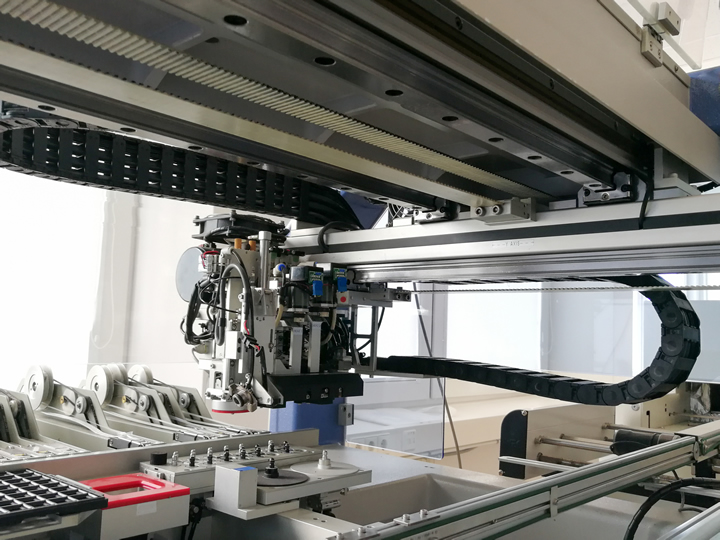How a Collaborative Approach is Driving Industry 5.0 Adoption in Ireland

The blessing and the curse of Industry 5.0 is that it’s an open-ended concept. It can help manufacturers improve nearly any aspect of their operations and supply chain in a way that’s unique to their needs.
At the same time, the fact that every Industry 5.0 project is different and there’s no one-size-fits-all approach is what can make it difficult to plan and implement.
Companies struggle to use not just the right technology, but the right terminology. They experience challenges bringing together large volumes of data, getting useful insights from that data, and keeping all their information secure.
Around the world, most manufacturers are navigating these challenges with a tight-knit group of partners and consultants.
But in Ireland, unlocking the potential of Industry 5.0 is a larger group effort. Manufacturers, government bodies and academic institutions are all working together, and their efforts are proving fruitful – with projects even being help up as global examples.
What’s driving the collaboration?
Collaboration is a byproduct of operating in Ireland. The country has a disproportionately high density of manufacturers that have developed into hubs of industry activity in a relatively small geographic footprint. This encourages companies to collaborate and partner.
At the same time, the Irish government proactively works with manufacturers to help embrace digital, disruptive and sustainable technologies.
One example of this is the industry-led, government-supported consortium called the Lighthouse Partnership in Disruptive & Sustainable Technologies. Initially focused on traditional pharma manufacturing, the consortium seeks to accelerate manufacturing transformation in Ireland through ecosystem collaboration.
The first challenge the consortium addressed was confusion about what exactly Industry 5.0 is. It did this by creating a common vocabulary and base level of understanding of Industry 5.0 technologies.
Next, the consortium conducted a digital maturity and sustainability assessment with eight organizations to help them understand the current state of their operations and identify future priorities. For the pharma industry, these priorities included digitally transforming operations without replacing large capital investments and closing connectivity gaps to enable digital transformation.
From this work, the consortium identified several collaborative and individual Industry 5.0 projects, which are now underway. The consortium is rolling out the model it used for pharma manufacturers to all of Ireland’s manufacturing sectors and those that support them, like the engineering, technology and sustainability sectors.
Supporting a key industry
Ireland has good reason to keep its manufacturing sector at the leading edge of innovation. Manufacturing accounts for about one-third of the country’s GDP, and the sector employs about 11% of its workforce.
The industry’s significance is reflected in the level of government resources that exist to support advanced manufacturing and collaboration.
The country’s new manufacturing research and training center, Digital Manufacturing Ireland (DMI) for example, is a strategic national initiative supported by the Irish government. DMI was created with a dual strategy, to help manufacturers in Ireland accelerate their adoption of digital technologies and to upskill the Irish workforce to build the necessary capability and capacity to operate future operations. To ensure coordination and synergy, DMI coordinates the activities of the Lighthouse Partnership in Disruptive & Sustainable Technologies.
Ireland has established research and training centers that work hand in hand with industry. The National Institute for Bioprocessing Research and Training (NIBRT), for instance, aims to help grow and further develop Ireland’s biopharma industry. The institute uses collaboration between industry, government and academia to help create innovative training and research solutions for biomanufacturers. Similarly, to the approach with Industry 5.0, NIBRT hosts a large consortium, the National Cell, Gene, and Vaccine Forum, spanning small and large enterprises, the research and clinical community and regulators to collaborate on projects and develop national capacity in emerging therapeutics.
Several supports are available from the Irish government to help the industry manage the cost of their advanced manufacturing projects. Those supports include a 25% R&D tax credit, grants to support RD&I and training grants aimed at upskilling the workforce for next-generation activities.
Industry successes
Thanks in part to the support available to them, multinational manufacturers are choosing Ireland as an innovation hub.
Earlier this year, for instance, electrification and automation company ABB opened a new multi-million-dollar Irish R&D center. The center will use technologies like 3D printing, AR/VR and collaborative robots to better meet the needs of the pulp and paper industry.
Many companies’ projects have received global recognition. For instance, the World Economic Forum designated the Cork operations of Janssen Sciences Ireland as a “sustainability lighthouse.” The operations are entirely powered by renewable energy sources and use adaptive process control and digital twin technology to optimize manufacturing and other energy-intensive operations. This has helped Janssen reduce the site’s carbon emissions by 56% per product kilogram.
Better together
Digital transformation can feel like an overwhelming endeavor because of all that comes with it – disruptive technologies, process changes, employee upskilling, security concerns and more. But in Ireland, manufacturers can take on these challenges with greater confidence by using the help and experience of others rather than going it alone.
About the author
Chantelle Kiernan is the senior scientific advisor for innovation and digital transformation at IDA Ireland, the Irish government agency for inward investment. In her current role with IDA Ireland, she is responsible for working in the international trade and development industry across sectors including biopharma, medical device, advanced manufacturing, and digitalization of operations. Kiernan is based in Dublin, Ireland and has worked for IDA Ireland for over 10 years. LinkedIn: https://www.linkedin.com/in/drchantellemccannkiernanireland/
Featured Product

